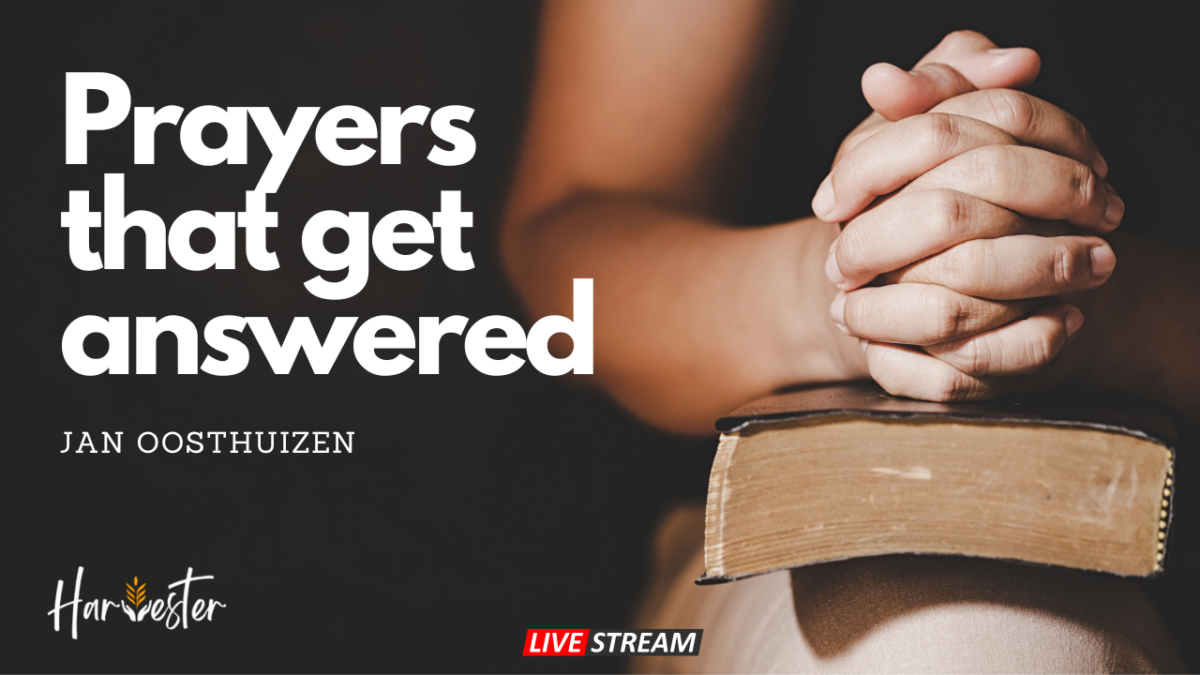#1: Hoogmoed Teenoor Nederigheid
In die wisselwerking van menslike sonde, weef hoogmoed dikwels sy drade meer subtiel maar verseker ook meer vernietigend as ander. Hoogmoed is die arrogante oortuiging dat ons selfgenoegsaam, spesiaal, superieur en outonoom is; wat daartoe lei dat ons onsself van God distansieer en ons eie begeertes en prestasies bo Sy wil verhef.
In ons moderne Westerse samelewing manifesteer hierdie hoogmoed op verskeie maniere:
- Ons vier selfgenoegsaamheid en tegnologiese vooruitgang asof dit ons onafhanklik maak van goddelike wysheid
- Ons omhels dikwels morele relativisme, verwerp absolute waarhede
- Ons verhef menslike rede bo goddelike openbaring.
- Ons kultuur se meedoënlose strewe na selfbehepte gerief rykdom en materialisme vervang geestelike toewyding, tradisionele gesinswaardes en gemeenskapsbande.
Hoogmoed en trots lê verskuil en sluimerend in elke hart, en net opregte nederigheid kan sy mag weerstaan so pragtig uitgebeeld in J.R.R. Tolkien se meesterstuk, The Lord of the Rings. In hierdie verhaal speel hoogmoed ‘n sentrale rol. Die ring self simboliseer die uiteindelike mag en die trots wat dit in sy draer kweek, wat hulle lei tot korrupsie en vernietiging. Karakters soos Saruman en Boromir word die prooi van hul eie hoogmoed—Saruman se begeerte na algehele beheer en kennis laat hom sy roeping verraai, terwyl Boromir se ambisie om sy volk te red deur die ring te gebruik, hom tot verraad dryf. Aan die ander kant toon Frodo en Sam nederigheid en selfopoffering, wat hulle in staat stel om die ring se mag te weerstaan en hul missie te voltooi. Hierdie kontraste in karakter illustreer Tolkien se boodskap: hoogmoed verblind en vernietig, terwyl nederigheid en die verwerping van selfverheerliking ware krag en oorwinning bring.
Die gevaar van trots is, dat ons dit geensins in onsself kan raaksien nie: ons sien dit maklik in ander en dit is afstootlik, maar ons is blind vir die hoogmoed wat in ons harte verskuil lê. Net die Heilige Gees kan ons oortuig van hierdie sonde!!!
Om nederigheid te omhels beteken om:
- ons afhanklikheid van God te erken,
- ander bo onsself te waardeer, en
- ons harte in lyn te bring met Sy soewereine wil.
- Terwyl ons vandag in die Skrif delf, sal ons ondersoek hoe hoogmoed in ons lewens manifesteer en hoe ware nederigheid, soos gemodelleer deur Christus, die pad na genade en verlossing bied.
Jonathan Edwards se lysie van Verskuilde Hoogmoed:
- Verdedigend teenoor Korreksie – Mense met geestelike trots glo dikwels dat hulle reeds vol lig en waarheid is, wat hulle weerstandig maak teen nuwe onderrig of korrigering.
- Foutvind in Ander – Geestelike trots maak mense geneig om die foute in ander op te merk en te kritiseer, terwyl hulle blind bly vir hul eie tekortkominge.
- ‘n Harde en Kritiese Gees – Dit lei tot ‘n harde en streng manier van praat oor ander se tekortkominge, selfs dié van mede-gelowiges en bedienaars.
- Voorgee en Vals Vertoon – Geestelike trots kan mense aanmoedig om anders te praat of op te tree om meer vroom of geestelik gevorderd voor te kom.
- Voel gou gekrenk – Die trots persoon is dikwels vinnig om beledig te voel oor veronderstelde beledigings of kritiek, wat hul diepgewortelde onsekerheid oor hul eie status weerspieël.
- Veronderstelling voor God en Mense – Mense met geestelike trots nader God en ander met onnodige selfvertroue, sonder die vereiste eerbied en nederigheid.
- Begeerte vir Aandag en Erkenning – Geestelike trots dryf mense om aandag, validasie en agting van ander te soek, en hulle verwag dikwels spesiale behandeling of erkenning.
- Verwaarlosing en vernedering van Ander – Trots kan veroorsaak dat mense ander verwaarloos of afwys wat hulle beskou as minder belangrik.
Pastore se Hoogmoed Lokval:
- Bevorder van Hul Persoonlike Handelsmerk: Pastore ontwikkel ‘n persoonlike handelsmerk deur sosiale media, boeke en openbare toesprake, wat hulself kan verhef bo die boodskap van die evangelie.
- Eie Toekenning vir die Sukses van die Kerk: Sommige pastore neem krediet vir die groei en sukses van hul kerke, wat lei tot ‘n trotsheid wat hul eie leierskapsvermoëns bo God se werk plaas.
- Eksklusiwiteit in Geestelike Interpretasie: Pastore mag hul teologiese interpretasies as uitsonderlik reg aanbied en ander perspektiewe afmaak, wat ‘n gevoel van meerderwaardigheid kan skep.
- Verwaarlosing van Verantwoordbaarheidstrukture: Die vermyding of ondermyning van verantwoordbaarheidsmeganismes, soos toesig deur ouderlinge, kan ‘n teken wees van geestelike trots.
- Publisering van Persoonlike Opofferings: Gereeld praat oor hul persoonlike opofferings of las kan die fokus verskuif na hul eie toewyding en weg van God se voorsiening.
- Beheer oor die Kerk se Visie: Sommige pastore dring daarop aan dat hul visie vir die kerk goddelik geïnspireer is en nie bevraagteken moet word nie, wat samewerking en kreatiwiteit kan stuit.
- Verwagting van Erkenning en Voorrang: Pastore mag onbewustelik spesiale behandeling of erkenning van hul gemeente verwag, wat ‘n gevoel van ‘entitledment’ kan weerspieël.
- Oordrywing van Hul Rol in Geestelike Transformasie: Die aanspraak op ‘n groot rol in die geestelike groei van die gemeente kan ‘n opgeblase gevoel van selfbelang weerspieël, terwyl ware transformasie uiteindelik die werk van die Heilige Gees is.
Samelewing en Kultuur se Hoogmoed Lokval
In die moderne Westerse samelewing, kom verskeie tendense en kulturele houdings voor wat vorme van hoogmoed weerspieël. Hierdie trots kan as misleidend en arrogant teenoor God gesien word.
Hier is enkele spesifieke maniere waarop dit manifesteer:
- Selfgenoegsaamheid en Onafhanklikheid
- Sekulêre Humanisme (Ek is God)
- Verbruikergerief en Materialisme
- Verwerping van Bybelse Gesag
- Verheffing van Menslike Rede
- Herskryf van Morele Waardes
- Aftakeling van Gesins- en Gemeenskapswaardes
- Politieke en Kulturele Dominansie
- Verwaarlosing van die Armes en Kwesbares
- Uitbuiting van die Omgewing
- Ondermyning van Geestelike Praktyke
Die Grootste Sonde (CS Lewis )
In hoofstuk 8 van “Mere Christianity”, getiteld: “The Great Sin”, bespreek C.S. Lewis die konsep van trots as die kern van alle sondes en die grootste struikelblok in die Christelike lewe. Lewis argumenteer dat trots nie net ‘n morele gebrek is nie, maar ‘n geestelike kanker wat die verhouding tussen mense en God vernietig.
Hier is die hoofpunte van sy bespreking oor die tekens van trots in ons lewens:
- Kompeterende Aard van Trots: Trots is inherent kompeterend. Dit is nie genoeg om ryk, slim of aantreklik te wees nie; trots vereis dat ons ryker, slimmer of aantrekliker moet wees as ander. Dit is die behoefte om beter te wees as ander wat trots dryf.
- Onvermoë om God te sien: ‘n Trots persoon is geneig om af te kyk op ander, wat dit onmoontlik maak om op te kyk na God. So lank as wat ons besig is om ons met ander te vergelyk, mis ons die groter prentjie van God se majesteit.
- Onbewustheid van Eie Trots: Trots is dikwels onsigbaar vir die een wat dit het. Ons is geneig om trots in ander te sien en dit te verafsku, maar ons sien dit selde in onsself. Die eerste stap na nederigheid is om ons eie trots te erken.
- Trots en Godsdienstigheid: Mense wat vol trots is, kan steeds beweer dat hulle in God glo, maar in werklikheid aanbid hulle ‘n ingebeelde God wat hulle eie trots voed. Hulle gebruik ‘n vals sin van nederigheid om ander te oordeel en te veroordeel.
- Effek op Verhoudings: Trots skep vyandskap tussen mense en veroorsaak konflik en wedywering. Dit kan selfs vriendskappe en gesinsverhoudings vernietig, aangesien dit die diepste bron van onenigheid is.
Wat Hoogmoed Nie is Nie:
- Gesonde Selfrespek: Om ‘n gevoel van selfrespek te hê en jou eie waarde te erken, is nie hoogmoed nie. Dit is noodsaaklik vir geestelike en emosionele welstand. Om trots te wees op jou eie prestasies of dié van geliefdes is natuurlik en positief wanneer dit gebalanseer word met nederigheid en dankbaarheid. Voorbeeld: Om te sê, “Ek is trots op my vriend wat gegradueer het,” erken ons hul harde werk en sukses sonder om meerderwaardigheid of ‘n gebrek aan nederigheid aan te dui.
- Ambisie en Strewe: Ambisie en die begeerte om doelwitte te bereik of jouself te verbeter, is nie inherent hoogmoedig nie. Wanneer dit gedryf word deur ‘n begeerte om positief tot die wêreld by te dra en persoonlik te groei, is ambisie ‘n deug. Moeder Cabrini se ambisie om instellings van hoop en sorg vir die behoeftiges te bou, was nie hoogmoedig nie. Haar dryfkrag was gegrond in ‘n missie om ander te dien en ‘n groter doel te vervul.
- Valse Nederigheid: Valse nederigheid is ‘n vorm van hoogmoed waar individue hul vermoëns of prestasies afmaak om beskeie voor te kom. Dit kan ‘n subtiele manier wees om komplimente uit te lok of verantwoordelikheid te vermy. Praktiese Voorbeeld: Om te sê, “Ek is nie baie goed hierin nie,” wanneer iemand eintlik vaardig is, om lofprysing te lok of om te vermy om aan ‘n hoë standaard gehou te word, kan ‘n vorm van hoogmoed wees wat as nederigheid vermom is.
- Vrees vir Mislukking of Oordeel: Aarseling of uitstel as gevolg van vrees om foute te maak of belaglik te lyk, is nie hoogmoed nie, maar dikwels gewortel in onsekerheid. Dit is belangrik om te onderskei tussen die vermyding van aksie uit hoogmoed en uit ‘n vrees vir negatiewe uitkomste. Praktiese Voorbeeld: Om openbare toesprake te vermy uit vrees om ‘n fout te maak, gaan meer oor angs en selftwyfel as oor hoogmoed. Ware nederigheid behels die bereidwilligheid om te probeer, selfs met die risiko van mislukking.
Laat die Woord Jou WAS en Reinig:
1. Hoogmoed as ‘n SONDE
“Hoogmoed kom voor die val, en ‘n hoogmoedige gees kom voor die ineenstorting.” Spreuke 16:18
“Om die Here te dien beteken om die kwaad te haat; ek haat trots en arrogansie, slegte gedrag en verdraaide praatjies.“
Spreuke 8:13
2. God Staan TEENOOR die Trots
“Maar Hy gee groter genade, daarom sê Hy: ‘God weerstaan die hoogmoediges, maar aan die nederiges gee Hy genade.'”
Jakobus 4:6
“Beklee julle almal met nederigheid teenoor mekaar, want ‘God weerstaan die hoogmoediges, maar aan die nederiges gee Hy genade.'”
1 Petrus 5:5
3. Hoogmoed Lei tot VERNEDERING
“‘n Persoon se hoogmoed bring hom tot ‘n val, maar iemand met ‘n nederige gees kry eer.” Spreuke 29:23
– “Want elkeen wat homself verhoog, sal verneder word, en elkeen wat homself verneder, sal verhoog word.”
Lukas 18:14
4. Bybelse Verhale wat Hoogmoed en Sy Gevolge ILLUSTREER
– Daniël 4 (Koning Nebukadnesar se Hoogmoed)
– Jesaja 14:12-15 (Lucifer se Val)
– Eksodus 5-14 (Farao se Harde Hart)
5. Hoogmoed as AFGODERY
“Die hoogmoedige oë van die mense sal verneder word en die trots van die mensdom sal neergebring word; die Here alleen sal verhef word op daardie dag. Want die Here, die Almagtige, het ‘n dag bestem vir almal wat hoogmoedig en trots is, en vir almal wat verhoog is (en hulle sal verneder word).”
Jesaja 2:11-12
“Die trots van jou hart het jou mislei… Al woon jy hoog soos ‘n arend en al bou jy jou nes tussen die sterre, van daar sal Ek jou neerbring, spreek die Here.”
Obadja 1:3-4
6. Nederigheid as die TEENVOETER vir Hoogmoed
“Moet niks doen uit selfsug of uit ydele eer nie, maar in nederigheid moet die een die ander hoër ag as homself, en kyk nie net elkeen na sy eie belang nie, maar ook na die ander s’n.”
Filippense 2:3-4
“Hy het jou bekend gemaak, o mens, wat goed is. En wat vra die Here van jou? Om reg te doen, om liefde en trou te bewys, en om nederig te wandel met jou God.”
Miga 6:8
7. VOORBEELDE van Nederigheid wat Teenoor Hoogmoed Staan
– Filippense 2:5-8 (Jesus se Voorbeeld)
– “Hy moet meer word, en ek minder.” Johannes 3:30
8. WAARSKUWINGS teen Geestelike Hoogmoed
(Die Gelykenis van die Fariseër en die Tollenaar) Lukas 18:9-14
“Want wie maak jou anders as enige ander? Wat het jy wat jy nie ontvang het nie? En as jy dit ontvang het, waarom roem jy asof jy dit nie ontvang het nie?”
1 Korintiërs 4:7
9. Die Uiteindelike Vernedering van die Trots
– Openbaring 18 (Val van Babilon)
“So sal die mense neergebring word en almal sal verneder word, die oë van die hoogmoediges sal verneder word. Maar die Here, die Almagtige, sal verhoog word deur sy reg, en die heilige God sal geheilig word deur sy geregtigheid.”
Jesaja 5:15-16



















